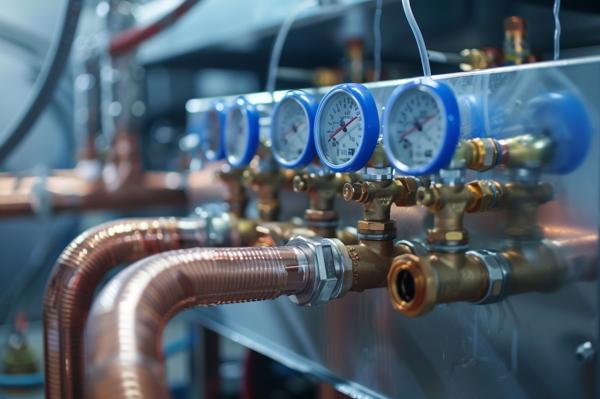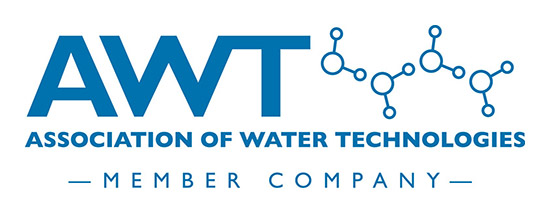
Evaporative Condenser Water Treatment refers to the process of managing and maintaining the water quality within evaporative condensers, which are a type of heat exchanger commonly used in industrial cooling systems, refrigeration, and air conditioning systems.
What is an Evaporative Condenser?
An evaporative condenser is a device that cools and condenses refrigerant or other process fluids by utilizing the cooling effect of evaporating water. The process involves:
- Heat Exchange: Hot refrigerant or process fluid flows through a coil or heat exchanger within the evaporative condenser.
- Water Spraying: Water is sprayed over the coil, and as it evaporates, it absorbs heat from the refrigerant or fluid inside the coil.
- Airflow: Fans move air through the condenser, aiding the evaporation process and carrying away the heat.
Why is Treatment Necessary?
Over time, the water used in evaporative condensers can accumulate impurities, such as dissolved minerals, biological contaminants, and particulates. If left untreated, these impurities can lead to several issues:
- Scale Formation: Minerals like calcium carbonate can precipitate out of the water and form scale on the heat exchange surfaces, reducing efficiency.
- Corrosion: Impurities can lead to corrosion of metal components, weakening the structure and leading to potential leaks or failures.
- Biofouling: Bacteria, algae, and other microorganisms can grow in the water, forming biofilms that reduce heat transfer efficiency and create a breeding ground for harmful pathogens.
- Increased Water Consumption: Poor water quality can necessitate more frequent blowdown (the process of removing water from the system to control the concentration of dissolved solids), leading to higher water and treatment chemical usage.
What Does Evaporative Condenser Water Treatment Involve?
Evaporative Condenser Water Treatment typically involves the following:
- Chemical Treatment:
- Scale Inhibitors: Chemicals such as our CE1000 Scale & Deposit Inhibitor that prevent or reduce the formation of scale on heat exchange surfaces.
- Corrosion Inhibitors: Additives that form a protective layer on metal surfaces to prevent corrosion.
- Biocides: Chemicals that control the growth of microorganisms in the water, preventing biofouling and potential health hazards.
- Water Quality Monitoring: Regular testing of water chemistry to ensure that the levels of dissolved solids, pH, and other factors are within acceptable ranges.
- Blowdown Management: Optimizing the frequency and volume of blowdown to control the concentration of impurities in the system without excessive water wastage.
- Filtration: Using mechanical filtration systems to remove particulates and suspended solids from the water before they can cause problems.
- Maintenance Practices: Regular inspection and cleaning of the condenser and associated equipment to ensure it operates efficiently.
Benefits of Proper Evaporative Condenser Treatment
- Enhanced Efficiency: By preventing scale, corrosion, and biofouling, the system operates more efficiently, reducing energy consumption.
- Extended Equipment Life: Proper treatment reduces wear and tear on the system, prolonging the life of the condenser and associated components.
- Cost Savings: Reduced energy consumption, lower maintenance costs, and optimized water use all contribute to significant cost savings.
- Regulatory Compliance: Proper treatment helps ensure that the system meets environmental and safety regulations, particularly in regard to water discharge and air quality.
In summary, Evaporative Condenser Treatment is a crucial part of maintaining the performance and longevity of cooling systems that use evaporative condensers. It involves a combination of chemical, mechanical, and operational strategies to manage water quality and prevent the issues that can arise from untreated water.

